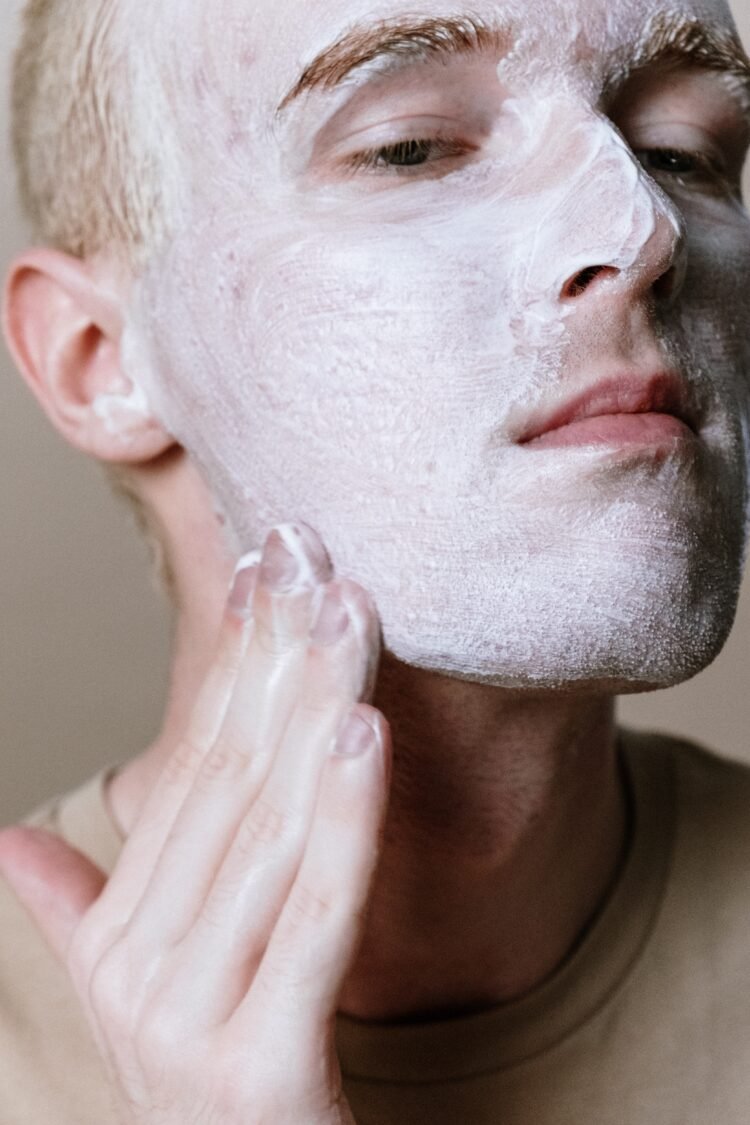Sometimes caring for your skin might be a chore. Making a skincare programme and sticking to it, though, is the hardest part. Discovering your skin’s type, texture, and the products that work best for you will result in fewer or no adverse effects. This is important before creating a routine. The results are anticipated to be seen within six to twelve weeks of consistency, however keeping to a consistent skincare practice is crucial because good things come to those who wait.
Here is an easier morning skincare routine to follow for the best results:
1. Cleanser
Cleansing your face thoroughly to open up your skin’s pores is the first step in any skincare regimen. It aids in removing dirt and pollutants. But occasionally, people have a tendency to wash their faces aggressively, which damages the skin’s barrier. Your skin type will, however, determine the sort of cleanser you use.
– Acne-prone skin: In addition to having acne, your skin may also be particularly oily, dry, or sensitive, which affects the cleanser you should use. People with sensitive skin should choose acne-fighting actives in modest doses, while those with extra-oily skin may prefer something more potent and those with dry skin should go for moisturising actives like hyaluronic acid. There is a straightforward method to determine your skin type if you are unsure. 30 minutes should pass after cleaning with a mild cleaner. You probably have oily skin if it feels slick. It is most likely dry if it is tight and flaky.
– Oily Skin: A foaming or gel cleanser will help you remove excessive dirt and oil from your skin, especially the T-zone.
– Sensitive Skin: Try micellar water, an ultra-gentle cleanser that contains micelles, which capture pollutants and lift them away without drying out your skin. – Dry Skin: If you have dry skin, use a balm or gel-based cleanser for effective results.
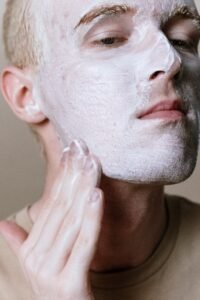
2. Toner
Toner is a gel-based liquid applied after cleansing the face using fingers, cotton balls or cloth. In addition to giving your skin an additional dosage of active substances, a good toner may assist guarantee that it is completely clean and free of dirt. It is not important to apply toner but it offers your skin a refreshing dose.
– If your skin is prone to acne: Look for a toner with hydroxy acids, such as salicylic acid and lactic acid, which promote cell turnover
– If your skin is dry or sensitive: Look for a moisturising toner (or its sibling, an essence) without drying alcohol and with calming components like glycerin and hyaluronic acid. Choose gentle exfoliants, hydration enhancers, and antioxidants like vitamin C, vitamin E, and green tea for combination skin because these can fight off free radicals and stop skin damage.
– If your skin is oily: Look for astringents that tighten pores, such as alcohol or witch hazel
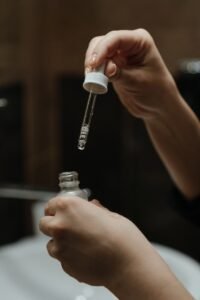
3. Serum
Your skin’s collagen is given a boost by a face serum, keeping it firm and smoothing out wrinkles and fine lines. Although fine lines and wrinkles are typical aspects of skin maturation, their appearance of ageing is caused by dryness and dullness. Your skin will be more vibrant and smooth after applying a serum.
There exist different types of serums:
– Anti-ageing Serum – Anti-aging Serums also put a strong emphasis on enhancing cell renewal, repair, and turnover. This improves the skin’s look and texture overall while helping the skin to age more gracefully. A common and well-known component for its potent anti-ageing benefits is retinol (a vitamin A derivative).
– Skin Brightening Serum – Brightening serums work by levelling out skin tone, reducing hyperpigmentation, removing age or sunspots, and smoothing your complexion. Your skin will now have a gorgeous, natural glow. These particular serums could include antioxidants like vitamin E and vitamin C or extracts from things like grapefruit, liquorice root, green tea, and liquorice.
– Hydrating and Exfoliating Serums – Moisturisers and lotions occasionally fall short when your skin is dry and dehydrated. Face serums can be useful in these situations. Because exfoliating offers so many advantages for the skin, it has a specific position in our skincare regimen. An exfoliating serum acts to even out skin tone, reduce fine lines and wrinkles, and treat hyperpigmentation and discolouration brought on by sun damage and ageing.
4. Eye Cream
Eye creams differ from face creams as they are made especially for the delicate eye area to combat dark circles and eye bags. To avoid pulling on this delicate area and inflicting injury, lightly tap an eye-area-specific product onto your ring finger while applying it in the morning and at night.
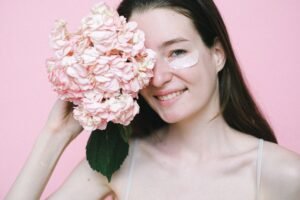
5. Moisturizer
Face moisturisers are the next in line since they keep your skin hydrated, and supple, and aid to improve its barrier. Choose a lighter moisturiser during the day, such as a lotion or gel that will absorb fast and won’t pill beneath makeup, if you have oily or acne-prone skin. Try a cream or other heavier composition if your skin is dry.
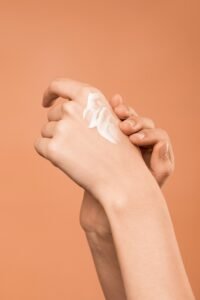
6. Sunscreen
Last but not least, applying sunscreen is a vital step in the skincare routine.
The two primary categories of sunscreen formulations are:
– Chemical sunscreens are created with substances like homosalate and avobenzone, which absorb UV rays that come into contact with the skin.
– Mineral components like zinc oxide and titanium dioxide in physical sunscreens, often known as mineral sunscreens, bounce UV rays off of the skin.
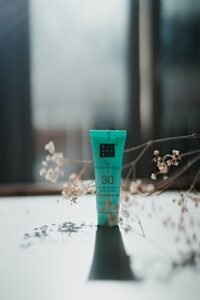
– Tip: Apply sunscreen even while staying indoors for protection from the UV rays.
Conclusion
Skincare is a crucial aspect of life because it greatly contributes to happiness and health. In order to see results, skincare involves more than just applying cosmetics; it also involves eating healthfully, such as including green leafy vegetables in your diet. Combining skincare with an efficient workout is beneficial since sweating causes your facial pores to open.

